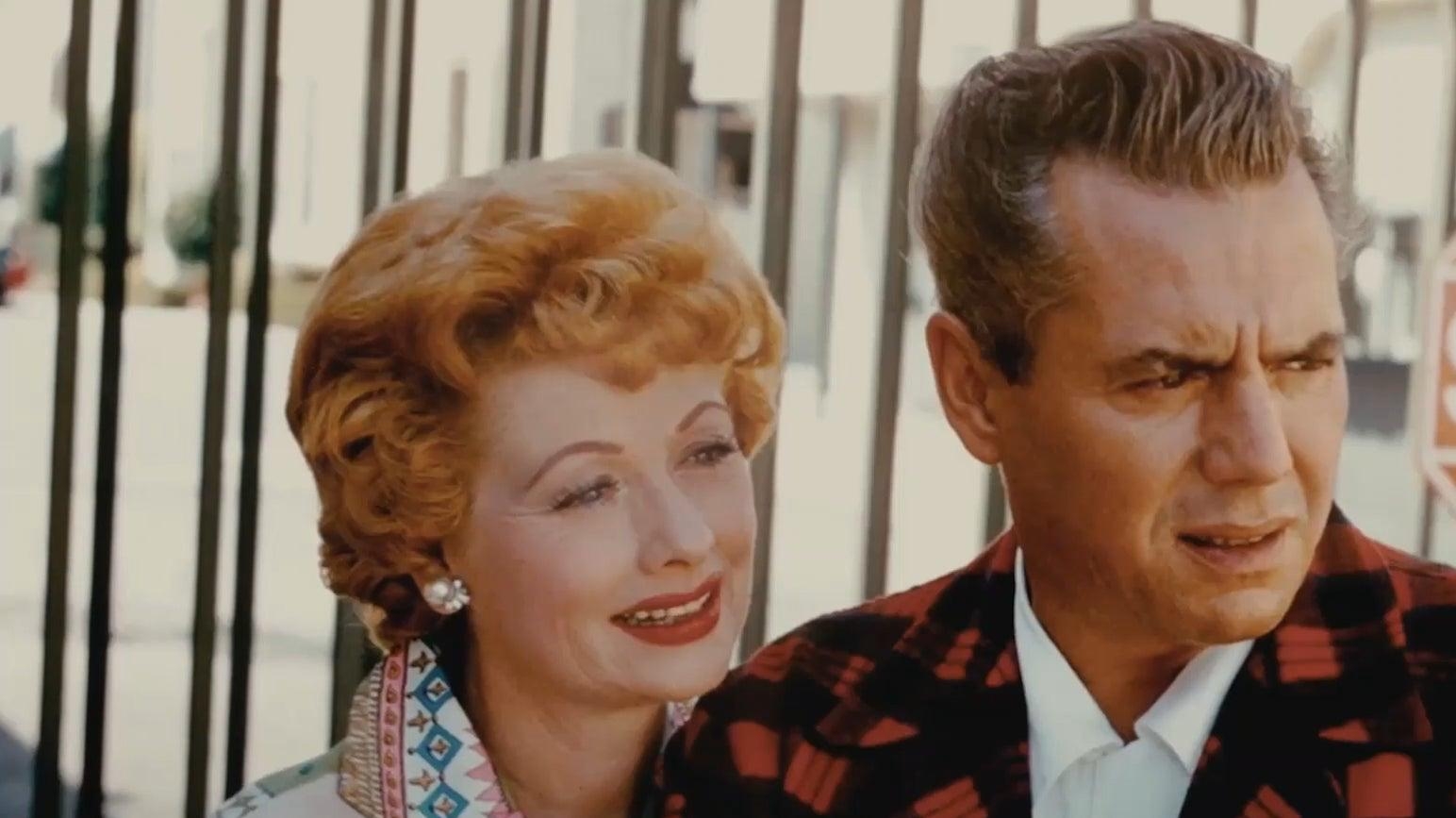Amy Poehler’s Lucy And Desi is a touching tribute to one of Hollywood’s most influential couples
The documentary draws a lot on home movies, along with the best of I Love Lucy

Lucille Ball had one of the most remarkably full careers in American show business: starting out as a model, moving to Hollywood to become an in-demand character actress and an occasional B-movie ingenue, and then transitioning into radio and TV sitcoms, where she rocketed to stardom. Her husband Desi Arnaz had a run just as strong: first as a Cuban refugee who helped to popularize Latin music on the nightclub circuit, and then as a television star, co-creating and co-producing the game-changing 1950s smash I Love Lucy alongside his wife. Together, Ball and Arnaz founded the production company Desilu, which normalized the concept of shooting shows on film, and which also backed groundbreaking series like The Untouchables and Star Trek. They had a tumultuous 20-year marriage. But after divorcing in 1960, they said their relationship as parents and as business partners grew stronger.
The Ball and Arnaz story is fascinating, driven by their mutual passions, pains, and inspiration. It’s also one that has been told frequently, in books and docudramas and even in a recent Turner Classic Movies podcast. All of which means that Amy Poehler’s new documentary, Lucy And Desi, isn’t exactly necessary. But anyone looking for a clear, concise explanation of how these two unlikely impresarios dominated American pop culture in the mid-20th century will find it here, supported by copious archival material and heartfelt testimony from the couple’s family, friends, and fans.
The clips are what make Lucy And Desi work. When Ball and Arnaz were developing I Love Lucy, they chose to shoot on film for practical reasons, so they could produce the show in California at a time when nearly all primetime network television was being broadcast live out of studios in New York. That one business decision paid lasting dividends, allowing for lucrative syndication deals for the I Love Lucy episodes, which were preserved as clean-looking mini-movies, controlled by Ball and Arnaz and easy to duplicate and distribute widely. Because of this, Poehler and her team (including veteran documentary producer and writer Mark Monroe) had a lot of material to draw from: not just classic scenes from Ball and Arnaz’s TV shows, but also behind-the-scenes footage, old audio interviews, and home movies.








































